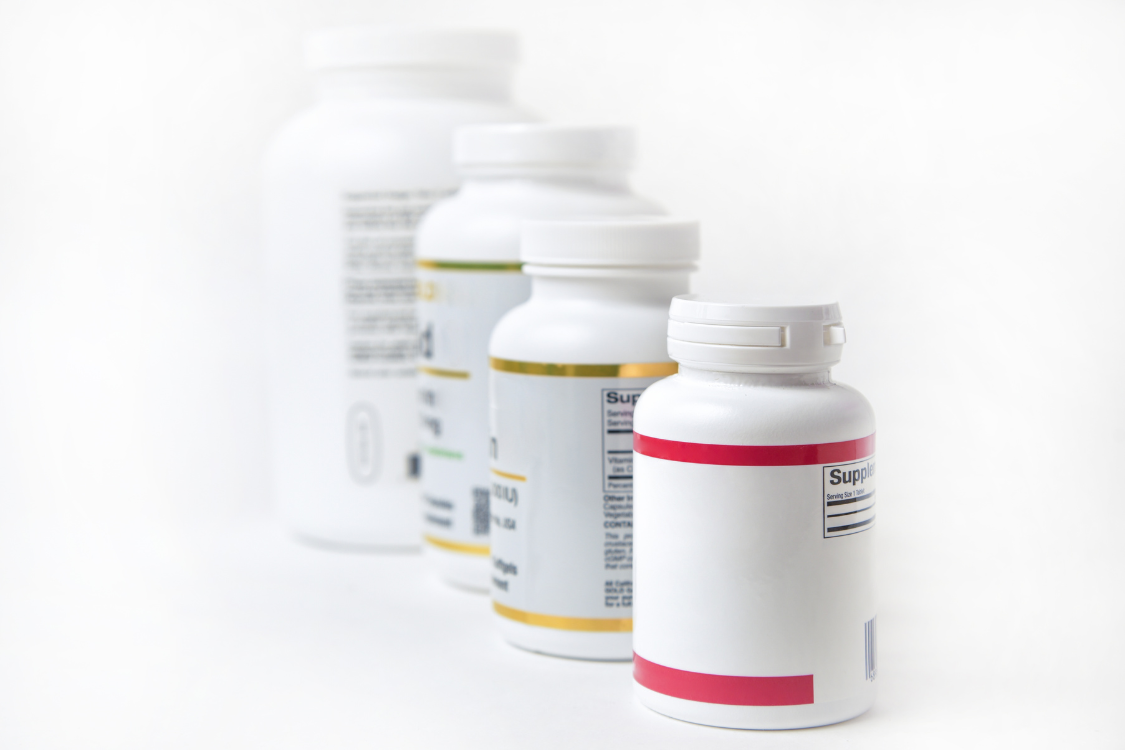Can you trust what’s on your supplement label? If the manufacturer isn’t certified, your customers and business could be at serious risk. Unverified supplement manufacturers might skip quality control steps, which increases the chance of contamination with heavy metals, pesticides, or unlisted ingredients. Lack of proper documentation may increase the risk of quality issues affecting product integrity and consumer trust.
This article shows you how to verify supplement manufacturer certification step by step to protect your customers, stay compliant, and build a trustworthy supplement brand.
Table of Contents
ToggleWhy Are Supplement Manufacturer Certifications So Important?
Choosing the wrong supplement manufacturer risks your business, brand, and customers. You cannot confirm that your supplements meet safety, legal, or quality standards without proper certification. This can result in poor product performance, customer complaints, or serious health risks.
Certifications from third parties can show a manufacturer is committed to quality, but only FDA compliance ensures legal protection under U.S. regulations. They also confirm that your manufacturing partner follows strict quality control procedures during production.
For consumers, certifications build trust. When customers see verified labels, they feel confident that the ingredients listed are accurate and the product has been tested for safety.
On the business side, working with a certified supplement manufacturer lowers the risk of costly issues like mislabeled products, contamination from heavy metals or pesticides, and false health claims. These problems can damage your brand and lead to recalls or legal action.

What Certifications Should a Supplement Manufacturer Have?
Before choosing a manufacturer, it’s essential to understand what certifications they should hold. These certifications show the company follows proper manufacturing practices and meets safety and quality standards. Not all certifications are required, but some are critical depending on the product type and market.
How Each Certification Impacts Your Brand
Each type of certification plays a specific role in shaping your supplement brand’s reputation, legal standing, and market reach. Understanding what each one means can help you make smarter decisions when choosing a manufacturer:
- FDA and cGMP: Legal requirements – These certifications are legally required. While the FDA does not issue certifications, manufacturers must follow these standards to produce dietary supplements in the U.S. legally.
- NSF and ISO: Extra layers of quality and safety – Although not mandatory, these third-party certifications show that the manufacturer has passed independent audits for safety, accuracy, and consistency. They boost your brand’s credibility and signal a commitment to high standards.
- Organic, Halal, Kosher: Niche market advantages – These certifications are valuable for targeting specific consumer groups. They prove your supplements meet particular ingredient or production standards and help your brand appeal to customers with specific dietary or cultural needs.
How to Verify Supplement Manufacturer Certifications Step-by-Step
Verifying supplement manufacturer certifications isn’t complicated, but it does require a few careful steps. Following this checklist helps you confirm that the company is legitimate and up to date on the required standards:
- Request documentation directly from the manufacturer – Ask for clear copies of each certification, ensuring the certifying body, expiration date, and company name are listed.
- Cross-check certifications with official regulatory databases – Don’t rely solely on what the manufacturer provides. Use trusted databases to verify the certifications are valid and current.
- Check expiration dates and renewal history – Make sure the documents are not outdated. A reliable supplement manufacturer should have up-to-date records without gaps in certification.

Where to Look Online to Verify Certifications
Several trusted online databases let you confirm if a supplement manufacturer holds valid certifications. Use these tools to verify the company’s claims before making any decisions:
- FDA Establishment Registration database – Search by company name or facility address to confirm FDA registration for dietary supplements
- NSF Certified Facility database – NSF audits facilities based on their quality and safety standards, indicating the manufacturer’s commitment to high-quality operations.
- USDA Organic Integrity Database – Verify that the company holds a valid and active organic certification
- USP, Non-GMO Project, and ISO websites – Look up certifications related to ingredient purity, sourcing, and manufacturing quality
- Certifier-specific directories – Use the official websites of any listed certifying body to cross-check certification status and expiration dates
Common Red Flags When Verifying Certifications
Not every supplement manufacturer is upfront about their certifications. When reviewing a company, stay alert for signs of something wrong. Here are common red flags to watch for:
- The manufacturer refuses or delays providing certification documents
- Certifications are expired or issued by unknown, unverified organizations
- The company name listed on the certificate doesn’t match the brand you’re working with
- Details on the label don’t match what’s listed in certification databases
- Information varies across sources like emails, websites, and official records
What to Do If Certification Information Is Missing or Unclear
If you’re unsure about a certification, ask the manufacturer for clarification. A responsible company will explain the certification status and share updated paperwork.
You can also request third-party audit reports. These reports give you a deeper look at the facility’s operations, including how supplements are tested for quality and safety.
If the company avoids questions or can’t provide what you need, it may be time to look for another manufacturer. Trust and transparency are essential when purchasing products to sell under your brand.

Protect Your Nutrition Brand by Verifying Certifications Thoroughly
Working with a certified supplement manufacturer is not optional. Certifications suggest the manufacturer has met specific quality or safety standards, but ongoing monitoring is still essential. Before signing any contract, verify each certification, check official databases, and watch for red flags. Skipping this step can lead to legal issues, unsafe products, and damage to your brand. Always verify supplement manufacturer certification to ensure you are partnering with a company that values quality and transparency as much as you do.
Frequently Asked Questions
What are the essential certifications for a supplement manufacturer?
The most critical certifications include FDA registration, cGMP compliance, and third-party certifications like NSF, USP, or ISO to ensure safety and quality.
How can I check if a supplement manufacturer is FDA-registered?
You can search the FDA Establishment Registration database using the manufacturer’s company name or location.
Where can I find if a manufacturer is cGMP certified?
Look for proof of cGMP certification in official documents or check with third-party certifiers like NSF or UL that audit for cGMP compliance.
What should I do if a manufacturer’s certifications seem suspicious?
Request updated documentation, verify with certifying bodies, and consider switching manufacturers if transparency is lacking.
Are third-party certifications necessary for my supplement brand?
Third-party certifications build consumer trust and show your supplements are manufactured under reviewed quality standards.
References
- U.S. Food and Drug Administration. (n.d.). FDA rules and regulations. Regulatory Information. https://www.fda.gov/regulatory-information/fda-rules-and-regulations
- U.S. Pharmacopeia. (n.d.). Dietary supplement verification program. USP Verification Services. https://www.usp.org/verification-services/dietary-supplements-verification-program




